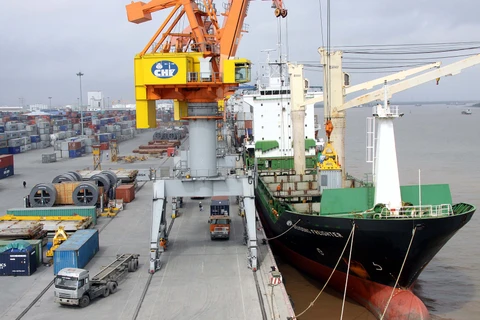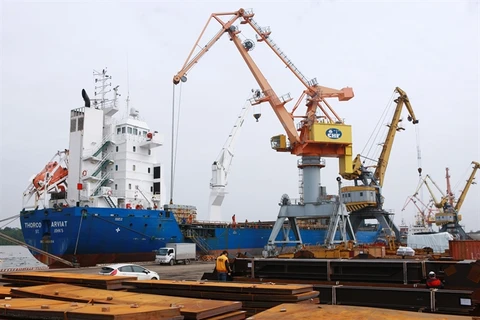Hai Phong (VNA) – Hai Phong city, which is at an important location in the northern key economic region, must post faster quality growth so as to stimulate overall development of the whole nation.
Prime Minister Nguyen Xuan Phuc made the requirement at a working session with municipal officials in the northern port city on September 19.
He highlighted the local advantages that cannot be found in other localities such as being one of the two biggest international seaports in Vietnam, holding a strategic location in the “two corridors, one economic belt” which links with China, and owning favourable infrastructure for tourism. As a major port city, Hai Phong is also a pioneer in integration in the country.
Applauding the fast economic growth and the social welfare benefits that are four times higher than in other localities, he also pointed out certain shortcomings such as unsustainable growth and less-than-expected agricultural production and administrative reforms.
The PM told municipal officials to augment assistance for small- and medium-sized enterprises and support industries while developing logistics services.
Hai Phong must work harder to raise agricultural productivity, overhaul infrastructure development planning and call for more private sector engagement in development projects. It has to protect the environment to turn tourism into a spearhead industry, he noted.
The Government leader also wants the city to be among the top 10 localities in administrative reforms and press on with crime fight.
At the working session, local officials reported that Hai Phong enjoyed the best socio-economic attainments since 2010 in the first nine months of 2016. It is taking the lead in FDI attraction with 2.66 billion USD of FDI invested in the period, up five-fold from the same period last year. Domestic businesses have also poured tens of trillions of VND into big projects, especially in tourism, in the city.
Budget revenue between January and September increased by 42.3 percent from a year earlier to 43.36 trillion VND (1.94 billion USD), fulfilling this year’s target.-VNA

























